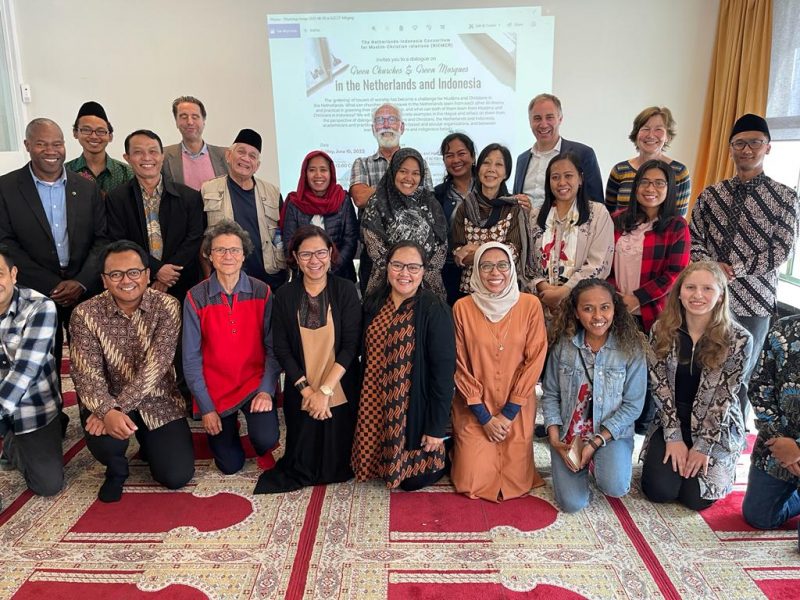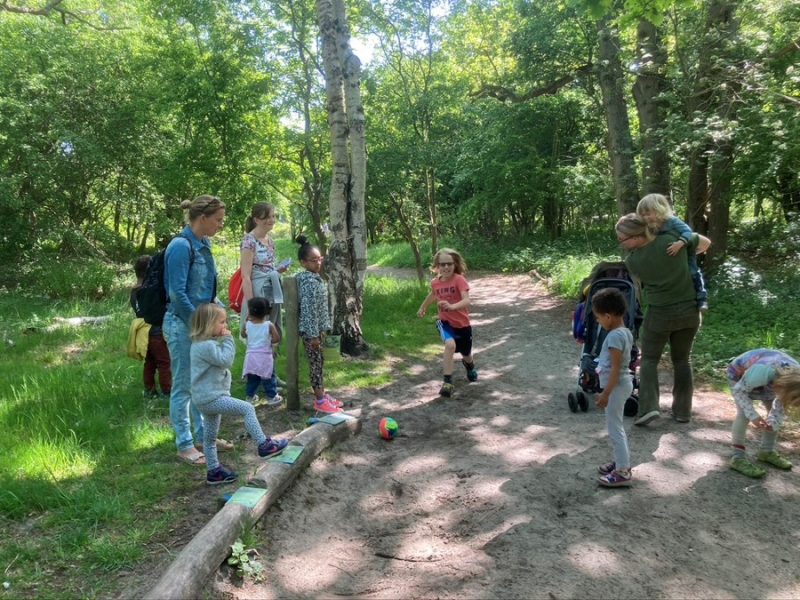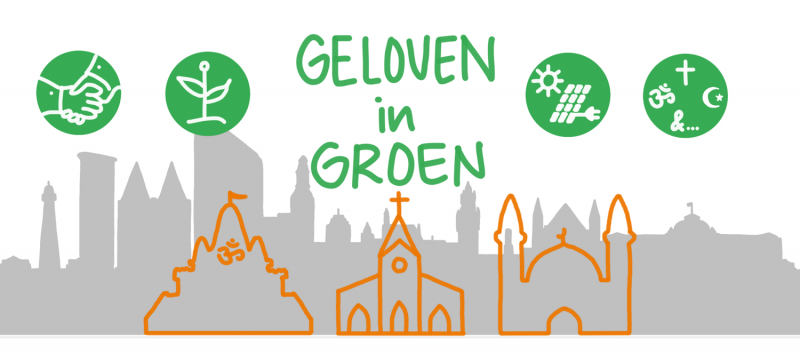Building relationships between religious communities through greening
Dialogue between churches and mosques in the Netherlands
Marijke van Keulen
June Beckx
In the framework of one of the projects of the Working Group, the Pokja on Religion and Ecology of the Netherlands-Indonesia Consortium for Muslim-Christian Relations (NICMCR), a dialogue was held on 10 June 2022 in the very hospitable Al Hikmah Mosque, The Hague. The building of this mosque, in itself a green mosque, used to be a church and was later used by Indonesian Muslims in the Netherlands as a house of prayer. The sessions were moderated by Jan Jorrit Hasselaar (VU) and Christine Hutubessy (OASE).
Featuring the greening efforts of this green mosque and two Protestant green churches, the participants tried to gather knowledge and ideas to further develop this important and urgent topic in their respective places of worship. These greening efforts could not, but be driven by a strong awareness of and belief in the Divine mandate to treat Creation with care, alongside a growing environmental consciousness.
The green Al Hikmah mosque links this awareness to the values outlined in the Alquran and Hadith. For example, when answering the question “May there be an excess of water when taking ablution (purification wudhu)? ” the message is clear: “Do not waste water when performing ablution, even when it is performed next to running water”. Rudy van der Aar explains that the greening of the mosque started 15 years ago, based on the concepts of ‘community’ and ‘connection’.
Gijsbert Pelikaan and Maaike Harmsen of De Morgensterkerk, a green reformed church, argue that greening motivation is based on Christian ideas: the global environmental problems have a spiritual background, that has everything to do with the relationship between God and men. God gave people a great responsibility to take care of Creation of which men are part of. Through faith hope and love we commit ourselves as human beings to ecological and social justice. Thus information to the members of the congregation is built into the sermons on “creation” as an integral part of faith and Christian duties.
The Lukas Church also holds prayers and services on creation and sustainability. The church confesses guilt, expressed in its mission statement: “We value creation, but we are a threat to it (…) and are committed to a sustainable way of life, as individuals, church and society.” As with the Morgensterkerk, the congregation is made aware through word and deed. Waltraut Stroh names the Green Inspiration Day on 23 April 2022, held in The Hague with lectures, music, exhibitions and more, an important milestone that brings people from all walks of life together in a big manifesto to “Colour Green”.
The participation of Initiatives of Change (IoC) in this dialogue was remarkable. This international organisation, which is active worldwide in building bridges of trust, is strongly committed to reducing CO2 emissions and increasing sustainability. In a three-year programme “Faith in Green”, in cooperation with the municipality of The Hague, in which the Al Hikmah mosque and the Lukas church also participated, IoC Nederland sees it as a calling to assemble faith(-based) communities in doing greening together.
In addition to the already classic means of implementing sustainability, such as installing solar panels, using fair trade products, refraining from using plastic, etc., the faith communities are committed to the involvement of the whole family. The construction and maintenance of bird- and bee-friendly gardens prove to be rewarding projects where grandparents and their grandchildren strengthen their bond, but also “wonder walks in nature” organized by the Lukas church, bring young and old closer together … and to nature.
Greening efforts in Indonesia were highlighted, among others:
- The Project Eco-Mosques and Eco-Churches in Indonesia (Jimmy Sormin and Haryani Saptaningtyas), reaches out to religious communities in greening their places of worship.
- Kampung Iklim (climate village) is an example of churches and mosques working together through local government in Indonesia in terms of constructing water reservoirs, installing solar panels, etc.
- The Programme of Ekopesantrens and the Bank Sampah (waste banks), among others place collection points for waste to be collected later by the government.
- The project of helping a local village in Sulawesi with a more polycultural agriculture, to avoid problems caused by monocultural farming. This project is useful on several levels as it both benefits the environment and improves the farmer’s financial situation.
To empower religious leaders, such as imams, pastors and religious education teachers, the Pokja Ecology NICMCR has already developed an online course to be used in Indonesia. In a video shown during the dialogue, Zainal Bagir explained that the course is not intended to replace normal offline training, but should be seen more as a textbook. The course can of course be combined with conventional classroom teaching and can also be incorporated into workshops or training sessions. The course, which consists of texts, videos and infographics, is free and can be accessed by registering on fabo.org. There is also the possibility for participants to exchange experiences on certain topics through written exercises. Whether this course would be useful in the Netherlands remains to be seen, but it was suggested that with additions of practical ideas, theological reflections, etc. such a course could be useful for the Netherlands and Indonesia together.
The discussion also revealed other ideas that could be applied in both the Netherlands and Indonesia, such as the construction of vertical and horizontal (roof) gardens where excess water and fertilisers can be collected and reused. Another idea was to use the app Too Good to Go, to make people aware of the large amount of wasted food, in this case food from the hotels, and to ask religious organisations to help collect the leftover food.
Willem Janssen of IoC NL, was full of hope that this dialogue will take us further into a future of encounters and cooperation. During the dialogue, he heard many speak of the good atmosphere in the room, the humour and sometimes laughter, while serious matters were being discussed. Interfaith meetings like this, he concluded, are very encouraging and stimulating.




